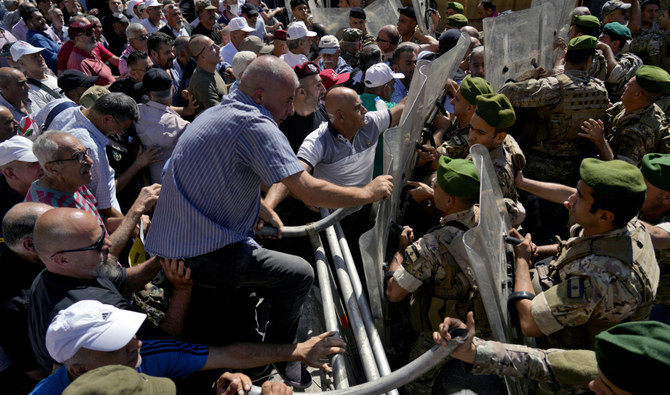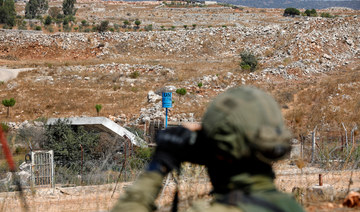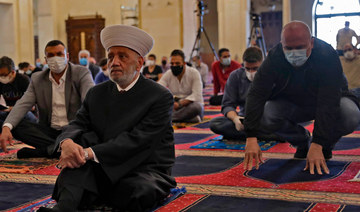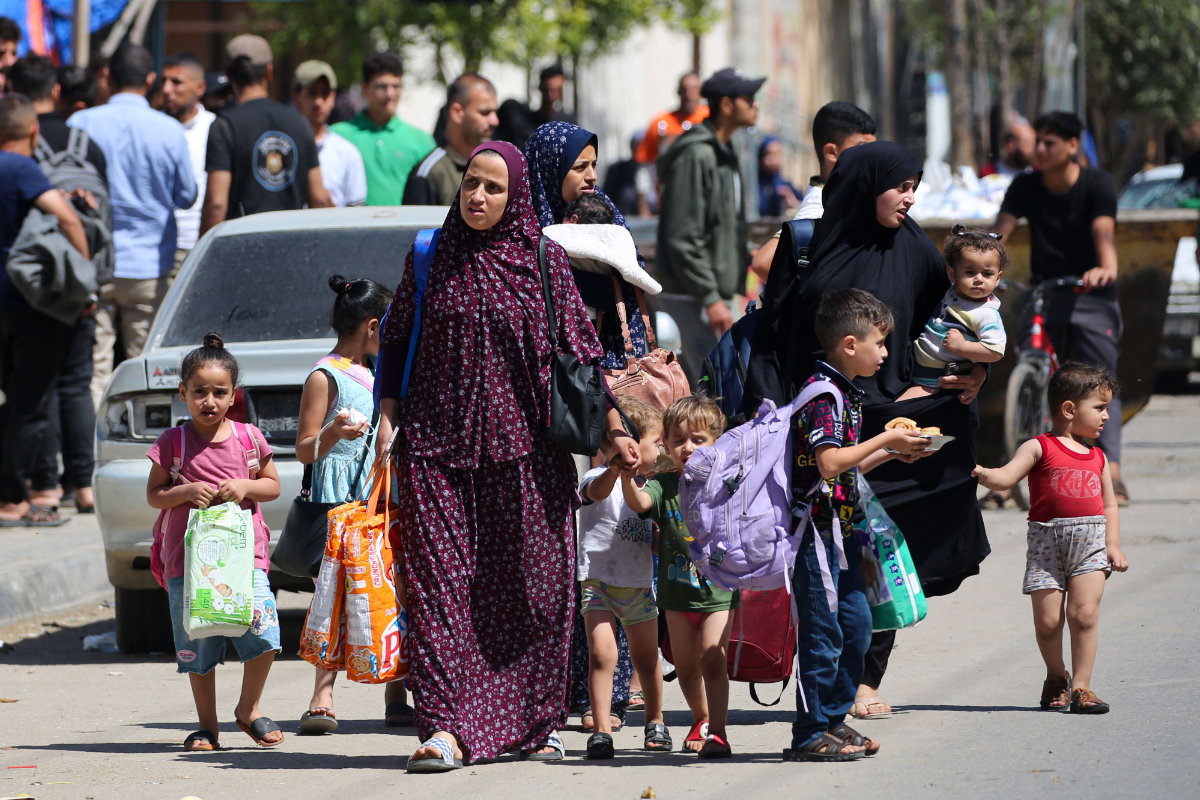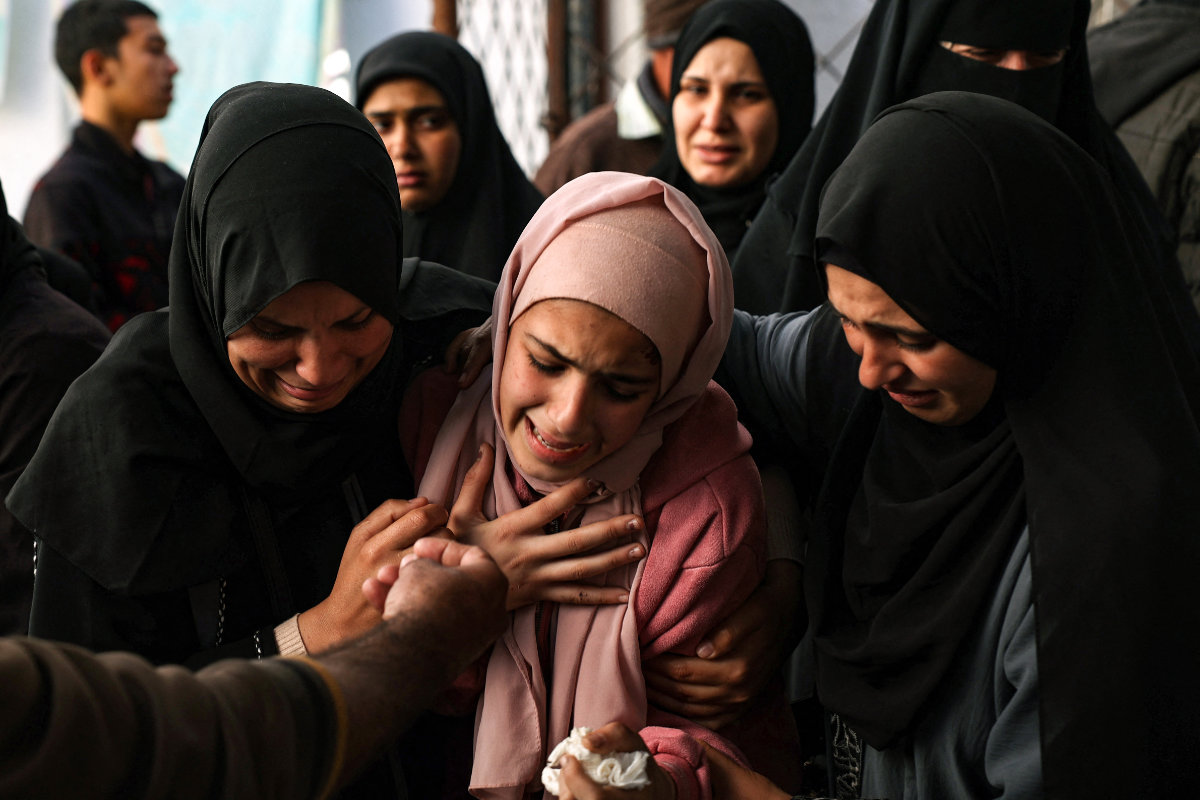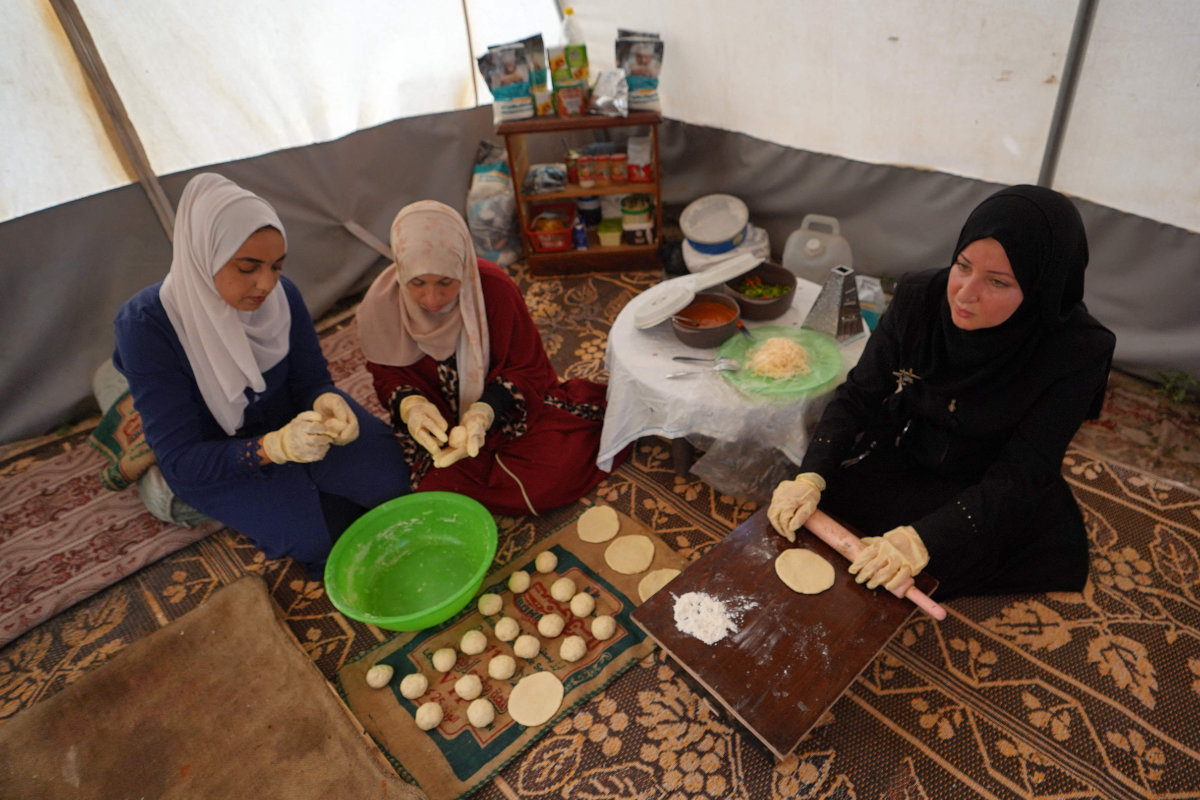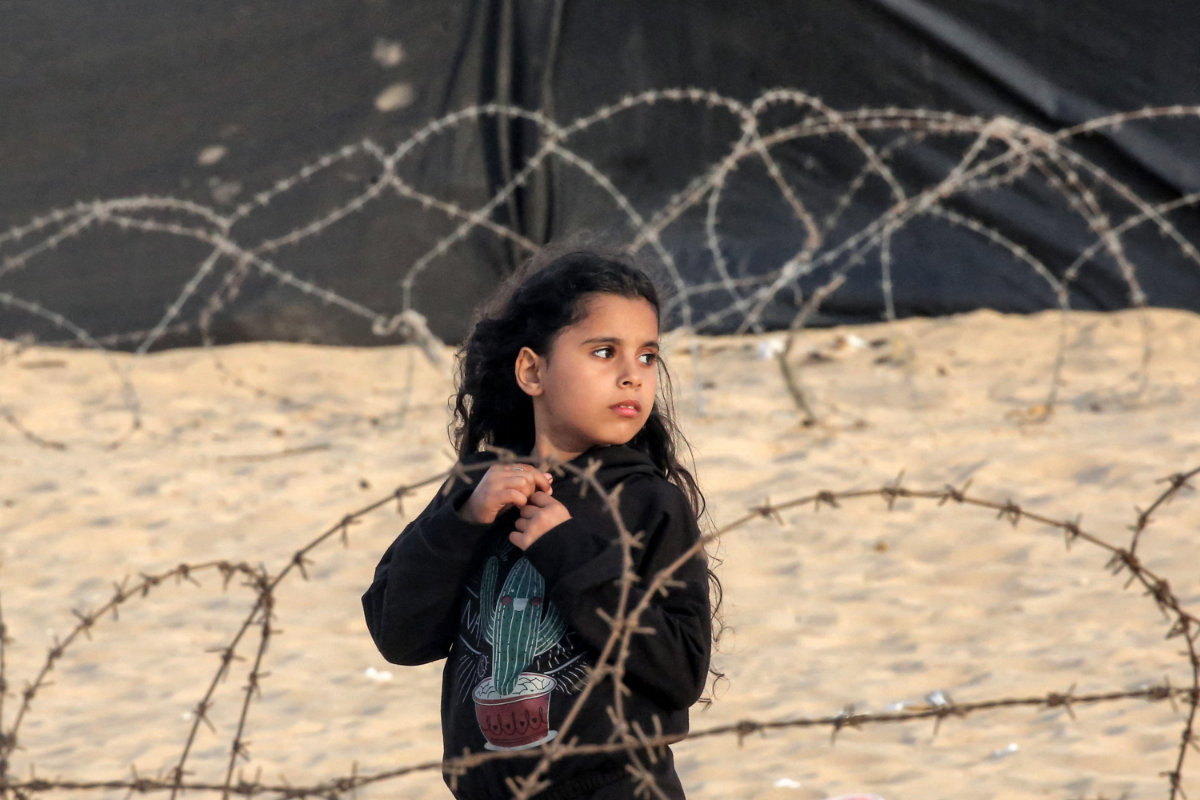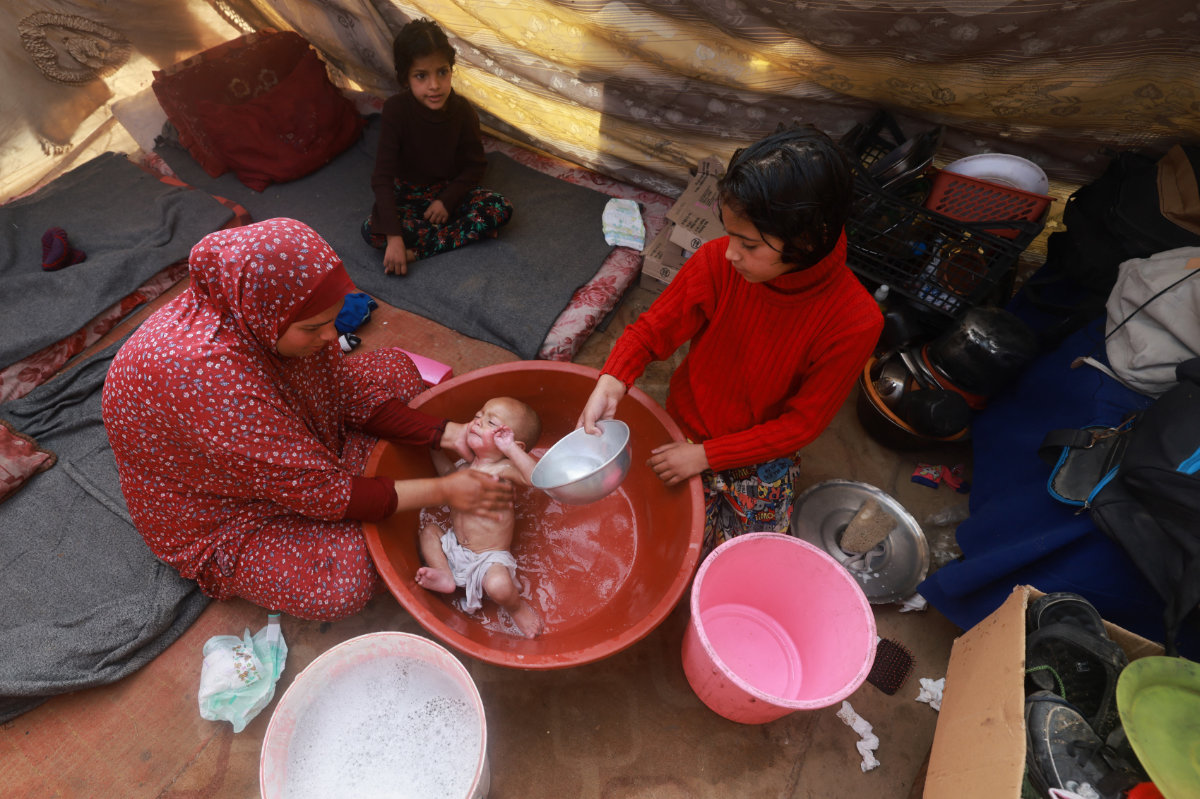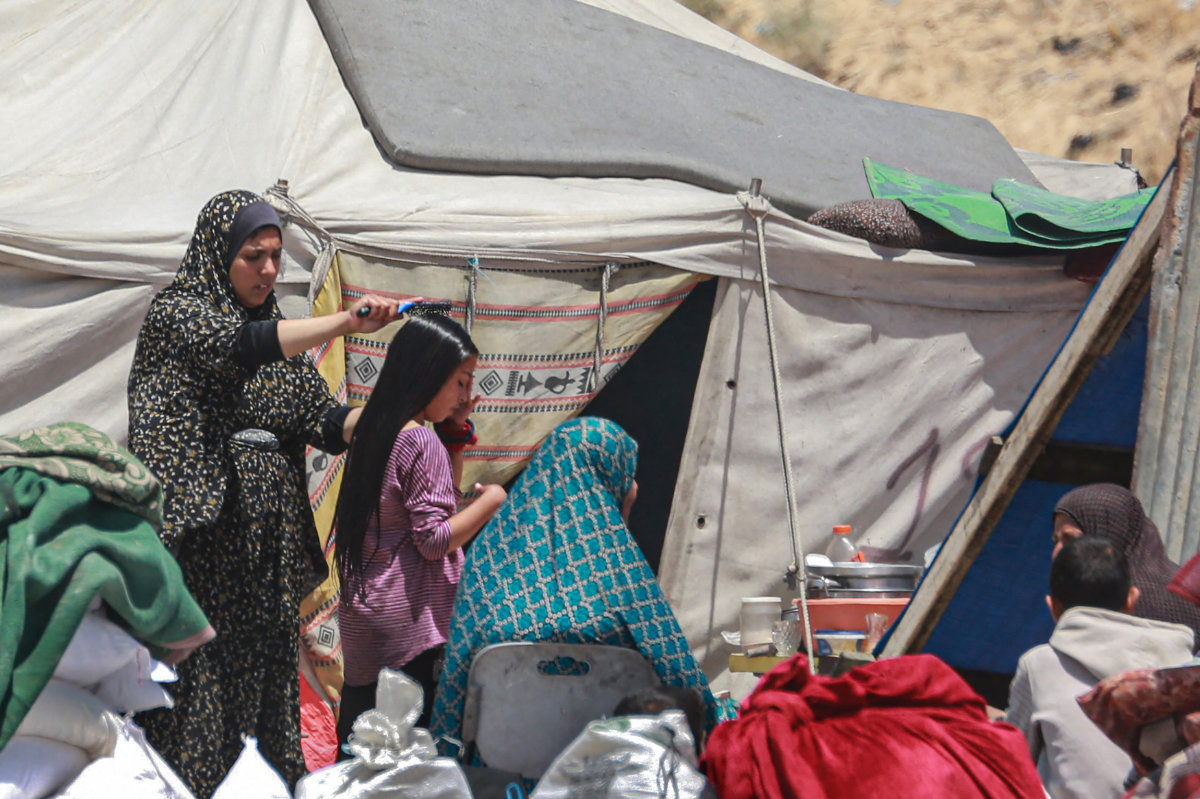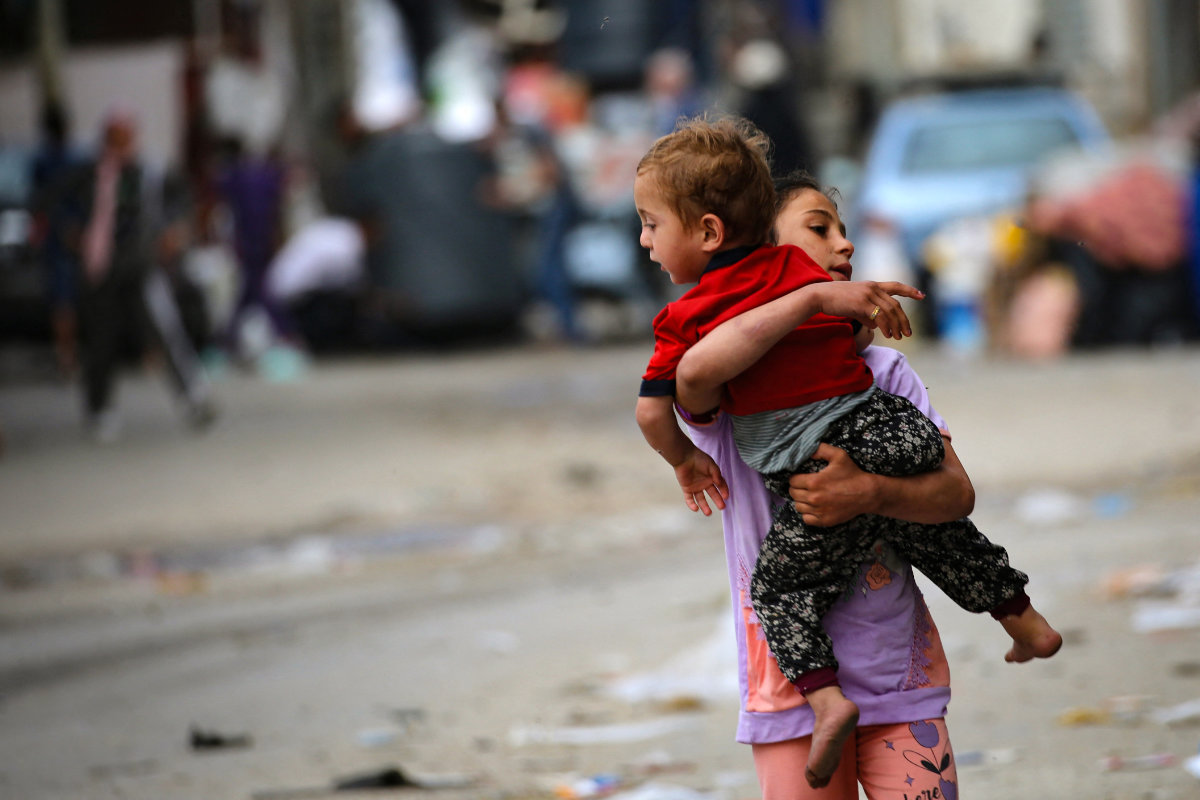BEIRUT: Lebanese army retirees scuffled with Parliament guards in Beirut during a rally on Monday amid anger over decimated monthly pay.
Hours after the protest, Parliament passed the 2022 budget, with 63 legislators voting in favor, 37 voting against and six abstaining.
The new budget will calculate customs tax revenue at 15,000 Lebanese pounds to the US dollar at a time when the black market rate is more than double that at 37,000 pounds to the dollar.
Since the country’s economic meltdown began three years ago, customs tax revenue has been calculated at the official rate of 1,500 pounds to the dollar.
According to the new budget, government expenditures stand at 40.9 trillion pounds ($1.1 billion) at the parallel market rate, while revenue stands at 30 trillion pounds.
The protesters, who appealed to the army chief to listen to their concerns, demanded that their salaries be tripled to account for the loss of purchasing value due to the economic crisis.
A stampede took place earlier as the army and Parliament guards were summoned to tackle the protesters.
The retirees — including military widows — were later able to break the security cordon in the face of what they described as their “military sons.”
Security personnel in charge of protecting Parliament used a tear gas grenade to prevent the protesters from reaching the stairs of the Parliament building.
MP Jamil Al-Sayed, a retired major general, walked out of the plenary session to address the protesters.
He was preceded by MP Cynthia Zarazir, from the Change Representatives bloc, who went out in solidarity with demonstrators.
“This police state is repressing protesters,” the MP shouted as she faced the stampede.
Some protesters sprawled on the ground to prevent attempts to remove them.
A small delegation of protesters, accompanied by Al-Sayed, entered one of the corridors of Parliament.
“The message from the protest has been received, and we don’t want to clash with our military colleagues,” said George Nader, a retired brigadier general.
Caretaker Defense Minister Brig. Gen. Maurice Selim left the Parliament hall to meet retired soldiers in Najma Square.
He told them that it had been decided that salaries would be tripled.
The detailed calculations will be handled by specialized agencies in the Ministry of Finance, the minister said.
MP Sami Gemayel warned that increasing salaries would lead to more currency printing, higher inflation, and consequently, a decrease in purchasing power.
Gemayel called for more focus on carrying out reforms and bringing more US dollars into the country.
Independent MP Michel Moawad described the budget as a “crime against the Lebanese” since it was being discussed without balancing the accounts, which meant a “new escape from accountability.”
MP Ibrahim Kanaan objected to figures sent by the Ministry of Finance for the customs dollar to be based on the exchange rate of the dollar at a value of 15,000 Lebanese pounds.
Director-General of Parliament Financial Affairs Dr. Ahmad Al-Laqis, an academic specializing in budgets and taxes, told Arab News: “It is the least possible budget. It is required by the International Monetary Fund. All objections are for political purposes.”
Al-Laqis added that the budget is only relevant for the remaining three months of the year.
As of next year, there will be general financial regulation, and the solutions required to resolve the economic crisis can be included in the draft 2023 budget as the state sets its economic plan, the official said.
The increase in retired military personnel salaries will be three times the basic salary, and will not include the benefits they receive, Al-Laqis said.
Meanwhile, Lebanese banks, which reopened their doors to customers after a week-long closure, witnessed crowding in front of their doors by employees and military personnel, who flocked to complete transactions and withdrawals.
The Association of Banks has adopted new procedures for receiving customers, including the need for appointments.
Some operations, including cash withdrawals and deposits related to transfers, can be completed through ATM exchange platforms.
Lebanese security services patrolled around bank branches during the reopening.
The banks, which initially resorted to opening a few branches to customers, took strict security measures to prevent a recurrence of the holdups carried out two weeks ago by angry depositors.
Some depositors had used weapons and incendiary devices to threaten employees in order to obtain their dollar deposits, which have been frozen since a decision by the Banque du Liban in 2019.



